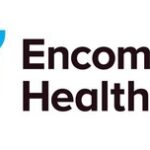 By Ben Assad Mirza, Esq., LLM, MPHA
By Ben Assad Mirza, Esq., LLM, MPHA
There are many pitfalls in healthcare. Activities that seem innocuous could be deemed fraudulent. Healthcare employers and healthcare whistleblowers should be on the lookout for the following types of activities involving Medicare, Medicaid or insurance compensation.
Paying for patient referrals: Companies and individuals that pay others to refer patients, such as insurance brokers getting paid by healthcare providers, or a lab or diagnostics business paying a physician to send patients for testing, or certain physicians getting paid more by a hospital because they refer them patients.
Electronic health record (EHR) fraud: Companies that gather and sell electronic health records systems and services may face liability for downstream improper storing and use of data. It requires having downstream agreements, even with affiliated and subsidiary companies. It also requires maintaining systems that meet government certification standards. In addition, providers and hospitals may face liability for fraudulently claiming EHR incentive payments, or for submitting fraudulent bills based on EHR systems designed to improperly increase reimbursements.
Billing under the wrong NPI number: Companies often do not pay attention to the NPI numbers that the billing is being done under. It is quite often that a healthcare provider bills under person A, but in reality, person B performed the services. That is improper billing.
Billing under Medicare Advantage Capitated Contracts when patient has not been seen: Companies that intentionally enroll Medicare Advantage patients, and then fail to bring the patient into the office for initial medical assessment or failing to provide the patient access to medical care, and then billing for it. Sometimes companies fall into billing for incarcerated patients, or patients who are out of the designated service area or even outside the country. Not removing these patients from the billing system could lead to fraud upon the government.
Billing for services that are not medically necessary: Medically unnecessary services may include unnecessary inpatient admissions, advanced imaging, unnecessary tests or lab work, and other procedures. For example: the ordering of extra services that were never necessary and unrelated to the actual real reason why the patient came to see the physician.
Billing for unlicensed personnel: This may include services provided by individuals who lack the skills or proper licenses, or services provided by trainees without the required supervision. For example: if a physician has a technician perform the services, and the business bills the insurance company as if the physician had performed the service.
Billing for unauthorized locations: This may include services performed at a facility that is inappropriate for that service, or a facility that is improperly staffed or equipped for the procedure. Or for example, hospitals systems that bill for services at the higher hospital rates, even though the services were provided outside of the hospital.
If you would like to see additional examples of healthcare fraud and what to lookout for, please visit https://www.mirzahealthlaw.com/examples-of-healthcare-fraud.
If you would like to find out more about what the rights, responsibilities and obligations of a healthcare provider are when it comes to billing and compliance, our firm has the knowledge, experience and the background to guide you through that process.
If you have any questions, contact Ben Mirza, Mirza|Healthcare Law Partners, at (954) 445-5503 or BAM@MirzaHealthLaw.com.


























